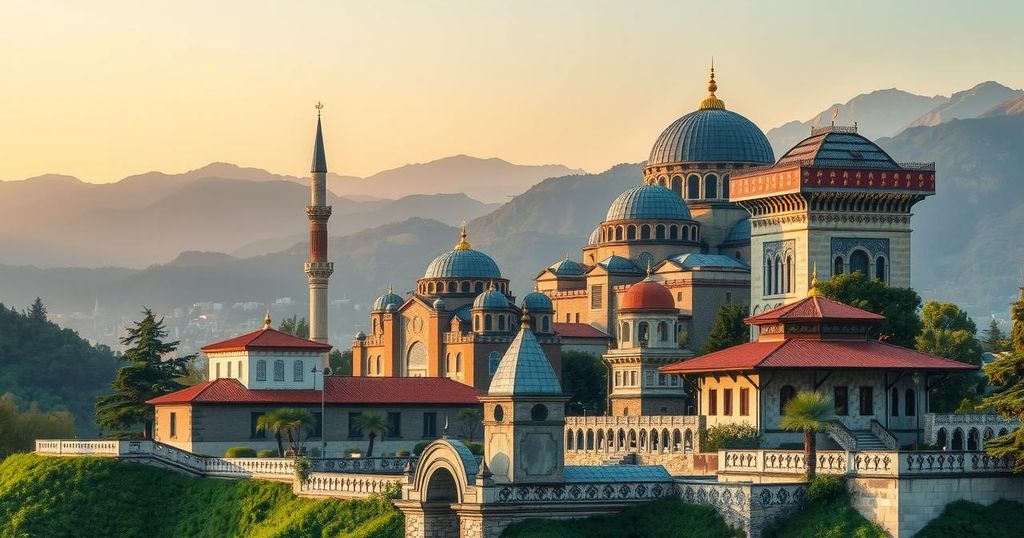Insights into Upcoming Russia-Ukraine Peace Talks in Turkey
Ukraine and Russia are set to meet in Turkey for peace talks, amidst skepticism regarding potential outcomes. President Zelensky has called for an in-person meeting with Putin, rejecting talks with lower-level officials. The Kremlin remains firm on its demands while the broader implications of these discussions are uncertain. Former President Trump may attend, but the situation remains fluid and complex.
In a highly anticipated meeting, Ukraine and Russia are slated to convene in Turkey for peace talks, marking the first such engagement since prior discussions faltered three years ago. Ukrainian President Volodymyr Zelensky stated that he will be present in Istanbul and extended an invitation to Russian President Vladimir Putin to join him. The stakes are high. Zelensky has made it clear that he will not engage with lower-level officials if Putin opts out.
The talks are set to officially commence on Thursday, with sentiments mixed about potential outcomes. The Kremlin has agreed to participate but has rejected Ukraine’s ongoing calls for an unconditional ceasefire lasting 30 days or more. Instead, they maintain their stringent demands, which some observers argue could undermine Ukraine’s sovereignty. According to reports, approximately one million lives have been impacted since the onset of this conflict, propelling the necessity for resolution.
Perhaps unexpectedly, former U.S. President Donald Trump has floated the idea of attending the negotiations. He mentioned he might consider flying into Turkey during his impending Middle Eastern tour, even expressing optimism about a potential meeting between Zelensky and Putin. “I have openly said that I am ready for a meeting. I will be in Turkey. I hope that the Russians will not avoid this meeting,” Zelensky stated on X, referencing Trump’s calls for direct engagement.
However, the presence of Putin at the talks remains speculative. Kremlin spokesman Dmitry Peskov declined to confirm who might attend from the Russian side, mentioning only a general commitment to pursue long-term peace. This meets skepticism from the Ukrainian side, as Zelensky’s aides have preemptively stated that their engagement hinges on Putin’s attendance. “If Vladimir Putin refuses to come to Turkey, it will be the final signal that Russia does not want to end this war,” said Andriy Yermak, chief of staff to Zelensky.
In tandem with unilateral discussions held in Saudi Arabia earlier this year, each nation has sent senior leaders to navigate their respective negotiating paths. Ukraine’s efforts have featured President Zelensky’s chief of staff and the new foreign minister, Andriy Sybiha, while Russia is represented by Foreign Minister Sergei Lavrov—a lesser-known figure within Putin’s inner circle. As reported by Russian diplomat Yuri Ushakov, the Istanbul discussions will consider previously halted negotiations and the current dynamics on the ground.
Turkish President Recep Tayyip Erdogan has also taken an active role in mediating these talks. In separate discussions with Zelensky, Putin, and Trump, he emphasized a newly identified opportunity for peace. However, the historic complexities of this conflict loom large. The desperate quest for resolution is tempered by the starkly opposing demands each side insists upon.
On one side, Putin’s staunch insistence on Ukraine disarming and recognizing Crimea as Russian territory stands against Ukraine’s unwavering sovereignty. Discussions could rehash unworkable terms laid out in previous negotiations. Additionally, Western partners, including the UK, assert that before any truce can be firmly established, Russia must agree to a ceasefire. Failing compliance may trigger worsening sanctions.
Lastly, history suggests a grim forecast for effective negotiations, as previous peace attempts and ceasefire agreements have traditionally faltered. The last talks in Turkey, for example, ended fruitlessly, as did many attempts prior. The road ahead remains fraught with challenges, and while hopes for tangible progress linger, the realities of entrenched positions may stymie genuine progress in ending this protracted conflict.
To summarize, the peace talks in Turkey present a critical juncture in the ongoing conflict between Russia and Ukraine. With President Zelensky’s insistence on meeting only with Putin, and both sides entrenched in their positions, there remain substantial challenges to achieving any meaningful resolution. The involvement of international figures like Donald Trump adds further complexity, yet the actual likelihood of a breakthrough appears slim given the historical context and vast differences in demands.
Original Source: www.independent.co.uk




Post Comment